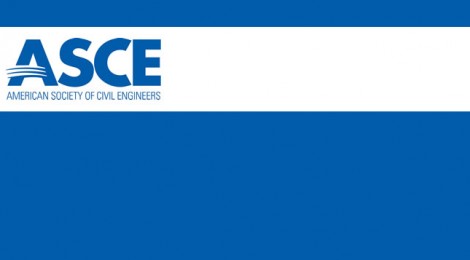
Engineers Learning about Sustainability
An upcoming webinar hosted by the American Society of Civil Engineers (ASCE) is entitled Building Public Trust Through Sustainability. It is offered Wednesday August 20th at 2 pm Eastern Time (free to ASCE members*).The presenter is D. Michael Mucha, F.ASCE P.E. of Madison, WI, who offered the following points as rationale for his discussion.
1) The infrastructure we design and build today will shape society for the next 50 years and well beyond.
2) Civil Engineers’ role in sustainability includes policy, leadership, environmental stewardship and life-cycle planning.
3) Sustainable infrastructure, designed to consider current and future hazards, plays a crucial role in a community’s resilience and ability to withstand and recover from natural or man-made disasters.
The webinar is one of a series being used in a toolbox of efforts to rapidly advance practitioners’ familiarity with the scope and nature of sustainability science and practice. ASCE was one of the first engineering professional organizations to adopt an aggressive sustainable design agenda for its membership. Through a variety of policy statements and position papers, ASCE leadership explained to its members that as the designers and builders of the built environment, civil engineers are also the stewards of the natural environment. They have both the expertise and responsibility to achieve a truly sustainable civilization that provides environmental, economic and social well-being now and for the future. Further, and consistent with sustainability practices, ASCE has encouraged its members to move from strictly technical roles to embrace opportunities to educate, lead, inform policy, and advance their knowledge of related topics such as life cycle planning, ecology, and the social sciences.
The Society has shown remarkable persistence, creativity and leadership as it continues to deliver its message of transformation and mission. Further, because so much of what civil engineers do interfaces with public spaces and facilities that the public funds and will use, ASCE has not missed the importance of social factors in sustainability planning and design. This is reflected in the topic of this webinar. Nevertheless, the larger task of transforming broader engineering practice through all sectors of the profession – mechanical, electrical, etc.—is a daunting one, and one that is proceeding at a much slower pace, unfortunately. There are pockets of activity, such as in the energy sectors, but there remains a great deal to be done both at the level of engineering education and practitioner continuing education. ASCE has provided an excellent top-down model for other professional organizations, although no doubt, there are other transforming paradigms that can be effective as well. We have a number of civil engineering practitioners in INSS. The ability of INSS to attract professions from other engineering sectors will be indicative that there is interest among these sectors in understanding and addressing the social issues and impacts of all kinds of engineering designs. If you know engineers who might be interested in the work of INSS, or *if you are not a member of ASCE but would like to attend the webinar, contact Helene Hilger, and she will see if she can arrange for you to have access to the event. (hhilger@uncc.edu)


